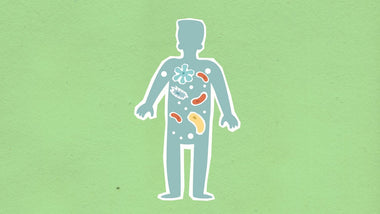What I tell my patients: High blood pressure (Part 1)

High blood pressure is extremely common. According to the Centers for Disease Control nearly half of adults in the United States have hypertension. What's worse is that only about 1 in 4 adults with hypertension have their condition under control.
Controlling high blood pressure is important because those elevated readings accelerate the wear and tear on your arteries and your heart. You can think of high blood pressure acting like a hammer that’s hitting your artery walls. The higher the pressure the more forceful the hammer – and the more likely that your arteries sustain damage especially with repeat hammering over many years. High blood pressure accelerates the build up of plaque, predisposes to aneurysm formation and increases the risk of stroke. High blood pressure's effects on heart muscle are equally damaging over time: Uncontrolled hypertension is the leading cause of heart failure in our country.
In the vast majority of cases, hypertension is “essential”, meaning it’s not just due to one thing. It’s not like if we just cut a nerve or opened an artery or cut out a tumor blood pressure would immediately come right back down to normal. Those circumstances are very very rare. Instead, hypertension is typically multifactorial and akin to putting straws on a camel’s back. Put too many straws on, the camel falls over – and you have high blood pressure. (The happy caveat is that if you take a few straws away, the camel can stand back up and your blood pressure problems go away!)
The straws include:
- a family history of high blood pressure
- increasing age
- kidney and/or thyroid disease
- pain
- nonrestorative sleep (including sleep apnea)
- stress
- smoking
- inactivity
- excess weight
- low fruit and vegetable intake
- excess sodium
- excess caffeine and
- excess alcohol
There’s nothing you can do about age and family history (those straws are put on and stay on), but there’s lots that can be done about the other factors. Thyroid and kidney issues, pain and sleep apnea are conditions physicians can help with. But the rest – it mostly falls on you.
The good news is that by doing your part you can absolutely reduce the number of medications needed to control blood pressure readings – or eliminate the condition altogether!
The approximate range of improvement in systolic (top number) blood pressure readings associated with some of these lifestyle modifications is as follows:
|
Losing weight |
5-20 mmHg decrease per 20 lbs weight lost |
|
Eating healthful diet |
8-14 mmHg decrease |
|
Reducing sodium |
2-8 mmHg decrease |
|
Regular physical activity |
4-9 mmHg decrease |
|
Reducing alcohol consumption |
2-4 mmHg decrease |
So put it all together – and you can realize anywhere from a 20 to 55 mmHg drop by simply changing lifestyle! That’s the same results you’d get from being on a bunch of drugs.
Different people respond differently to each of these lifestyle interventions (for example, some people are exquisitely salt-sensitive while others are not), but even if you don’t see massive blood pressure improvements by eating more fruit or exercising regularly, you are still improving your overall health, setting yourself up for healthy longevity - and helping your medications work better. After all, it’s much easier for a drug to overcome high blood pressure if it doesn’t have to also overcome excess weight and two cans of Mountain Dew.
If some of this sounds suspiciously similar to what I advise for lowering cholesterol, it’s because it is! Healthful lifestyle habits help improve EVERYTHING, especially the number of prescription bottles sitting in your medicine cabinet.
Read What I Tell My Patients: High Blood Pressure (Part 2)
Learn more about managing your blood pressure:
- What I Tell My Patients: High Blood Pressure (Part 2)
- 4 ways to lower blood pressure
- How to Get Rid of High Blood Pressure for Good
- Step One Reviews: The best home blood pressure monitor
Read the rest of the 6 part blog series "What I Tell My Patients":
- What I Tell My Patients: The First Visit
- What I Tell My Patients: Who Should be on Statins
- What I Tell My Patients: What if you're not a Food Responder?
- What I Tell My Patients: How I Explain Heart Disease
- What I Tell My Patients: High Blood Pressure (Part 1)
- What I Tell My Patients: High Blood Pressure (Part 2)

Tested & Proven Results.
- Cardiologist formulated
- Supported by over 500 publications
- Clinically-proven, in a double-blind randomized trial with Mayo Clinic and The University of Manitoba
80% of participants lowered their cholesterol in just 30 days. With just two servings per day, Step One Foods offers a proven-effective way to naturally lower LDL (bad) cholesterol.
Get heart health tips and articles like this, delivered right to your email.
New articles every week.
You may also like...

The Most Misunderstood Heart Number (Plus Your Tune-Up Checklist)

Why Two People Can Eat the Same Calories—and Only One Gains Weight

You don’t need to avoid foods with cholesterol…except for these


